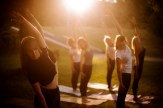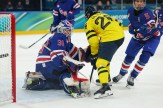These athletes pursue championships while on co-op
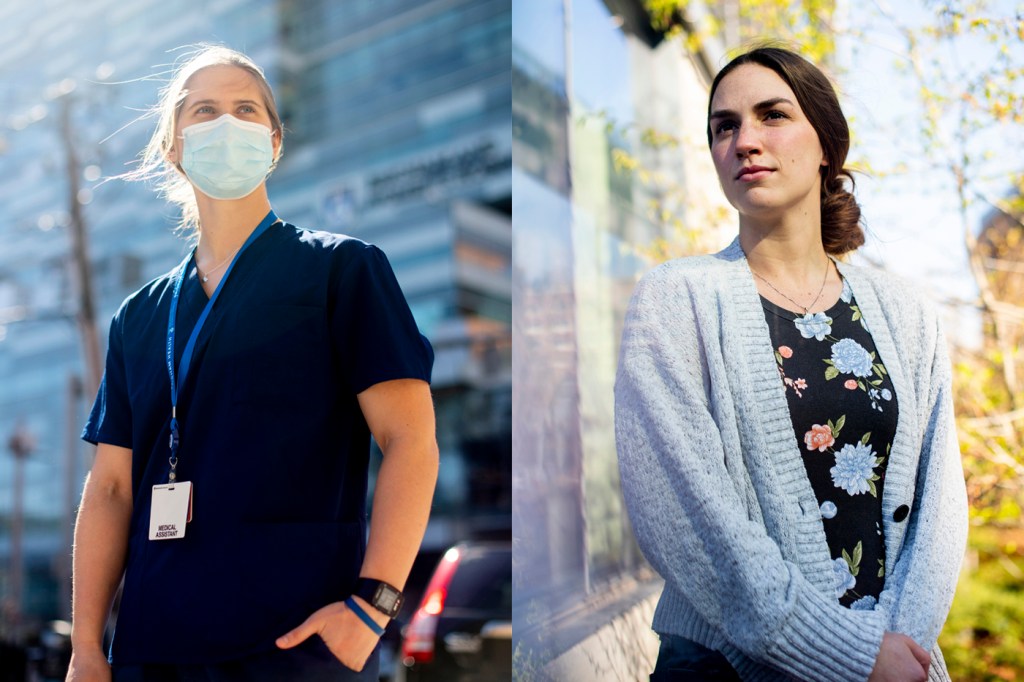
The marriage of education and co-op is a defining experience at Northeastern. Megan Carter, a sophomore who maintains a 4.0 grade point average in biology, added a third point of emphasis: She was on co-op at Brigham and Women’s Hospital in Boston while pursuing an NCAA championship in women’s ice hockey.
In January, Carter began working 8 a.m. shifts as a medical assistant in the urological surgery department of the world-renowned hospital, where she helped with a variety of patient procedures. By 5 p.m. she was biking straight to Matthews Arena for the Huskies’ evening practices. If work kept her late, the coaches would prepare a special video session for her.
Three hockey players—Carter, sophomore forward Katy Knoll, and junior forward Emma Jurusik—were on co-op while the record-breaking Huskies were going 22-2-1, sweeping through the Hockey East tournament for a fourth straight year, and forcing the final of the NCAA Women’s Ice Hockey Championship into overtime before losing 2-1 last month in Erie, Pa.
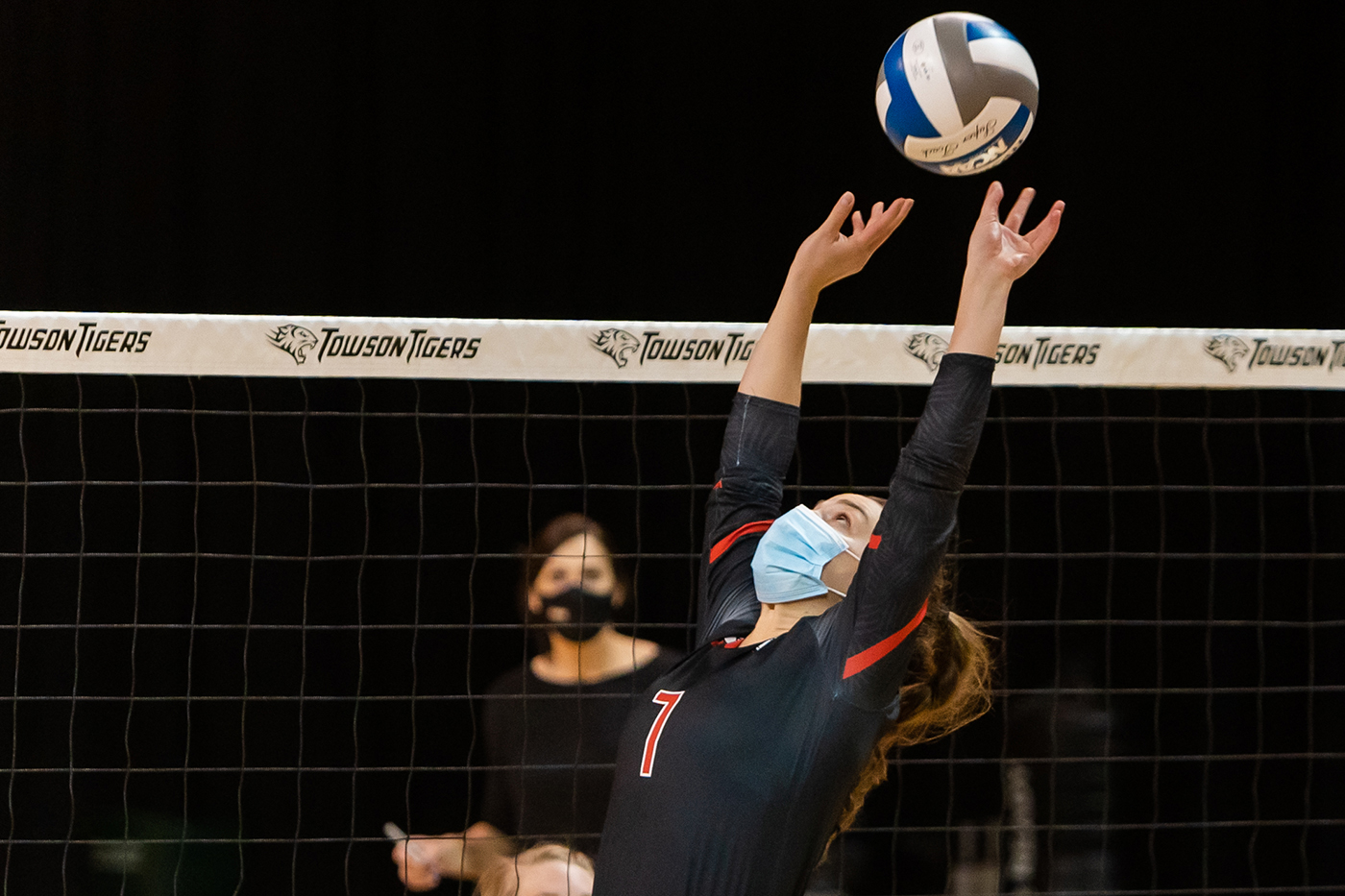
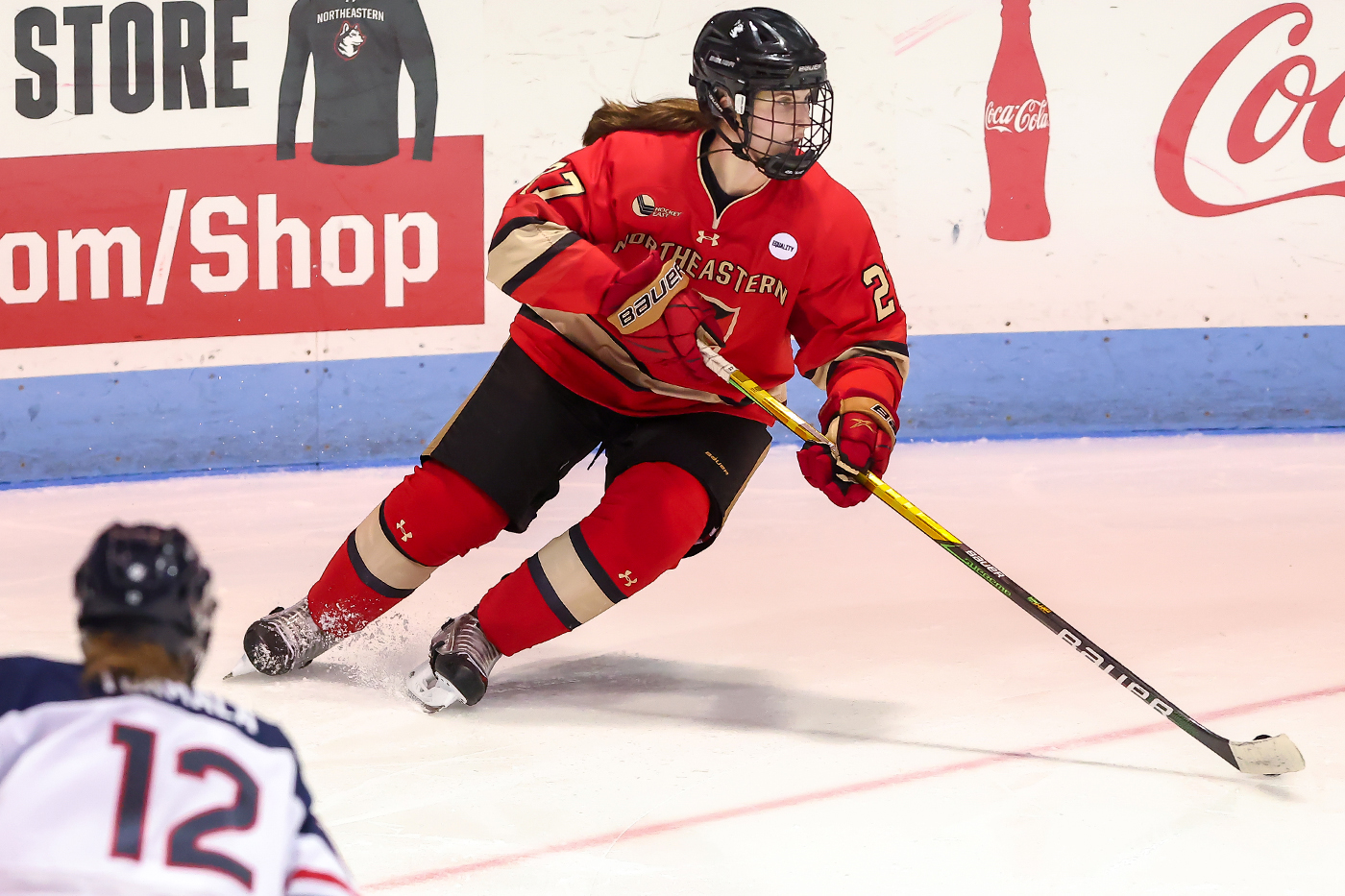
Based on the inherent commitment to games and practices, year-round training, and the mental focus necessary to compete at the highest level, varsity athletes are encouraged to view their sport as a second full-time job—in addition to their full-time commitment to earning a degree. For Carter and other student-athletes at Northeastern, co-op is another priority that creates actual full-time work.
“It’s pretty funny when a kid goes into their first co-op,” says coach Dave Flint, who has helped 11 current players serve co-ops while contending for championships in women’s ice hockey. “They’re all excited, thinking, ‘I don’t have to write papers, I don’t have to take a test, I don’t have to go sit in class, this is going to be great!’ After week two, you see them and they’re just physically exhausted. They realize really quick what the real world is like in working a full-time job. It’s not easy. And then on top of that, you’ve got this hockey thing to focus on, too.”
Flint used to accommodate his players’ co-op schedules by starting practice for the entire team at 6 a.m. Realizing that the early mornings were wearing out his players, he shifted to night practices this past season.
“It’s a big part of a degree from Northeastern: Getting that real-world experience, building a resume while you’re in school, and ultimately figuring out is this what they really want to do with the rest of their lives,” Flint says. “It’s also a big part of my recruiting process in trying to get kids interested in Northeastern. I sell them on co-op. I think it’s so valuable for each one of them.”
The hospital allowed Carter to miss work in order to attend the NCAA tournament March 15-20 in Pennsylvania. (Knoll and Jurusik, who were doing their co-ops online, put in some work hours during the week.) Carter says she was grateful for the “mental break” after so many harrowing weeks of working by day and practicing with her team at night. She earned the NCAA Elite 90 award for maintaining the top grade point average among the players in Erie.
“It was something that drew me in, knowing that Boston is a medical hub and that Northeastern has so many connections with these top hospitals,” says Carter, a Canadian hockey star from suburban Toronto who is planning to attend medical school. “Being a women’s hockey player, this is our reality: We’re not going to get drafted, we’re not going to go to the NHL at this point in time. This co-op experience could help get you on your way.
“Our coaches and our academic advisor really believe that it’s worthwhile to get that done,” says Carter, whose potential interests include a career in orthopedic surgery. “They rearrange our practice schedules to make that happen, and I’m very, very thankful that they do that for us.”
Sammy Shupe, a senior on the women’s volleyball team, was recently honored as setter of the year by the Colonial Athletic Association while leading the Huskies to their first appearance in the conference championship game. In the midst of those achievements, she was also serving a co-op in Boston as a lab technician at Dana-Farber Cancer Institute.
Her schedule has been demanding. She is awake as early as 5 a.m. to exercise and prepare her meals for the day. From 9 a.m. until 5 p.m. she processes blood samples and does other forms of groundwork that enable clinicians to analyze how cells respond to a variety of drugs. When work lets out she tutors Cambridge schoolchildren in math (“I need the income and I love the kids I work with,” says Shupe) and then, in volleyball season, she would hurry back to campus for 6:30 p.m. practices with her teammates. After a late meal, she would study for the Medical College Admission Test because, like Carter, she hopes to go to medical school.
Shupe missed one volleyball match because of her job, and would have been forced to skip others if the competitions hadn’t been canceled because of the COVID-19 pandemic. The hectic pace caught up with her during the conference tournament April 2-3 in Towson, Md. Shupe struggled during the Huskies’ semifinal victory over James Madison because, as she told her coaches, her daily responsibilities were overwhelming her.
“They told me, ‘You’re here for a reason—because you work hard,’” says Shupe, who is double-majoring in marine biology and biochemistry. “So they told me, ‘Love it. Enjoy the game. Enjoy playing. Just love it and go play.’
“And in the next game, that’s what I did,” Shupe says. “I went out there and I just loved it. It was fun. I had fun.”
Justin Jones, the interim head coach of the men’s rowing team at Northeastern, says the availability of co-op helps him recruit student-athletes who are committed to the hard work of identifying and fulfilling their dreams.
“When you’re on co-op as a third-year [student], you could potentially be booked from 6 a.m. until 8:30 p.m. for three or four days a week,” Jones says. “It takes a highly motivated individual who’s prepared to rise to those standards. When you identify an athlete in the recruiting process where they’re motivated by the things that make Northeastern unique, which are both challenging and rewarding—those are the people that come here and have the best experience.”
Time management becomes another life lesson, says Jones.
“We really try to teach the skill of being present and being fully engaged in whatever you’re doing,” Jones says. “We have definitely found that the way to get the best results out of the team is to support and promote a culture where they are engaged in a number of different areas academically, professionally, and athletically, and they know how to transition pretty seamlessly between those three things.”
Jones captained the rowing team during his final two years at Northeastern. He served a co-op as operations manager of Curry Student Center.
“It’s something that I talk about a lot in the recruiting process as a coach, that you can use the co-op to try out a specific direction that you may be interested in, whether or not it directly pertains to your field,” says Jones, who graduated in psychology. “I used it as an opportunity to see if I would enjoy a career in business and event management, and I’m really glad that I did. It’s not often that you’re 20 years old and you have a staff of up to 100 work-study facilities people reporting to you.
“It showed me through some hands-on learning how to manage a large staff, which is something that has translated very well,” Jones says. “I have 40 athletes on the team right now, and I find myself using some of the strategies that I learned as an undergrad co-op.”
The old-school approach to college coaching has pitted athletics and academics as adversaries, in belief that investing in a career beyond sports may undermine a player’s commitment to their sport.
But Carter, who will be returning with most of her teammates next season for another run at the national championship, contends that the opposite is true. She is convinced that her athletic abilities have been enhanced and liberated by her academic and professional interests.
“If you’re too focused on sports, then sometimes it can get into your head and you don’t have that escape,” Carter says. “And it goes both ways. If I have a huge exam I’m studying for, and I’m stressed, I’m so caught up in memorizing all this information—when I go to practice, I get two hours to fully clear my mind and do something that I love to do. And then when I come back I’m refreshed and I’m ready to go again. So I find they complement each other for sure.”
Carter believes that the experiences of competing at the highest level in all aspects of her life will help her someday in the operating room, if that is where her education leads her.
“Hockey comes with a lot of pressure, and then there’s the pressure of exams and wanting to maintain a 4.0 to keep that streak going,” Carter says. “I think those experiences at Northeastern have really trained me to accept pressure and make the most of it in any situation.”
For media inquiries, please contact media@northeastern.edu.

